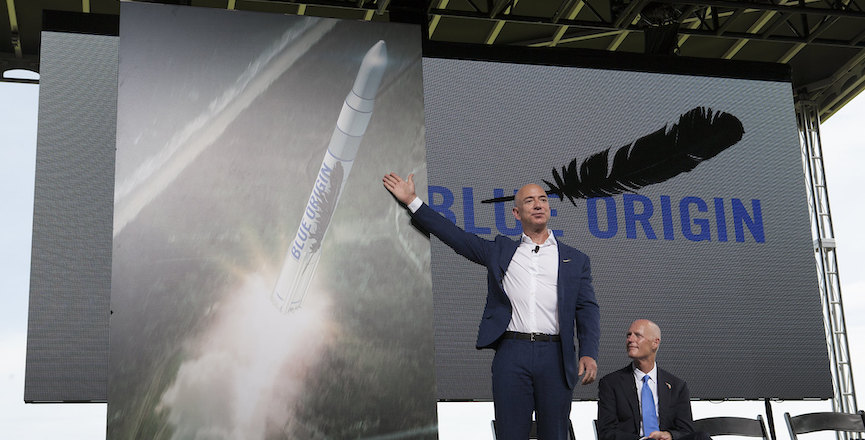The west Texas town of Van Horn was in the news this week as the site of the private space flight launched by the world’s richest man, Amazon founder Jeff Bezos.
Bezos made a ten-minute suborbital trip in his New Shepard space capsule, along with his brother and two others. Their short odyssey, costing an estimated $2.5 million per minute, rocketed them high above the unforgiving Chihuahuan Desert that straddles the U.S./Mexico border. For these giddy space tourists experiencing weightlessness, it was the trip of a lifetime. Far below, countless others make a far weightier trip, attempting the perilous trip from Mexico, across the desert furnace on foot, seeking refuge in the United States. Many of these migrants, exhausted and dehydrated, perish in the desolate terrain.
Armando Alejo Hernandez attempted the trip in early May. For more than a decade, Armando was one of the more than twelve million undocumented residents in the United States; a vast, perpetually hounded and harassed population without whose labour the American economy would collapse. Armando and his wife had two sons, both U.S. citizens by birth, before he was deported in 2016. After spending five formative years without his father, his elder son asked his dad if he could visit them in the U.S. Armando promised he would find a way.
All we know of Armando’s trek through the desert comes from his short voice messages and a single photo texted to his son. He described the clothing he was wearing, a black sweatshirt and blue pants. Was he predicting he might need to be rescued, or his body identified?
The photo was taken from the base of a slope. The ascent Armando faced looked brutal, through deep, dry grass obscuring sharp rocks, cacti and spiny shrubs. Just behind the high, distant ridge, a large, round, white, human-made structure appeared. As he was in Hudspeth County, southeast of El Paso, the structure is almost certainly the U.S. government radar installation atop Eagle Peak.
The climb up Eagle Peak would have been grueling. Armando had already told his son that he was out of water, that his cell phone was almost dead, and that he didn’t think he could go on. Had he made it to the radar installation and from there the winding road leading north, he would have needed to walk another 20 miles, with no food or water, to reach Interstate 10.
“I don’t think I can climb to the top of the mountain,” Armando said in Spanish in a recorded voice message he sent to his son. He sounded tired as he spoke through a whipping wind that made his message hard to hear.
Fernando Garcia of the El Paso-based Border Network for Human Rights told us over the phone, “More than 10,000 people have died crossing the border in the last 25 years. That is too high a price to pay to migrate to the USA (sic).” He has spent decades assisting migrants along the border.
“Now that the enforcement is so extreme,” Garcia explained, “people are crossing at even more remote places, east of El Paso, through rough terrain. There’s nothing there…people are just dying on their way to Highway 10.”
Garcia, who recently met with Vice President Kamala Harris at the border, criticizes the Biden administration for continuing Trump’s “Title 42” program, exploiting an obscure section of U.S. health law that allows deportations without any due process during a public health crisis. Since Trump invoked the law on March, 20, 2020, hundreds of thousands of migrants have been expelled.
In the past, migrants at risk in the desert could turn themselves in to Border Patrol and at least get a hearing before an immigration judge. Now, facing immediate expulsion if caught, Garcia told us, they are taking increasingly dangerous routes through the desert.
Hudspeth County administrator and emergency management co-ordinator Joanna MacKenzie told the news outlet Border Report that six migrants are known to have died in the harsh terrain in the past two weeks alone, as temperatures rise and rescue resources are stretched thin. Many of those lost go forever uncounted.
Armando’s deportation under the Obama administration began a five-year separation between him and his sons. Now, the cruelty of U.S. immigration policy may well have consigned these two bright boys to be fatherless forever.
As the world’s news organizations gathered in Van Horn, Texas, focusing their cameras upward at Jeff Bezos’ rocket, showering the world’s richest man with unrelenting, free media coverage, below their gaze, we sadly believe, may lay the remains of Armando Alejo Hernandez and so many more. Armando didn’t aspire to go to space, but only to close the space, that soul-crushing space, imposed by the United States, between Armando and his sons.
Amy Goodman is the host of Democracy Now!, a daily international TV/radio news hour airing on more than 1,300 stations. She is the co-author, with Denis Moynihan, of The Silenced Majority, a New York Times bestseller. This column originally appeared on Democracy Now!
Image: NASA Kennedy/Flickr



